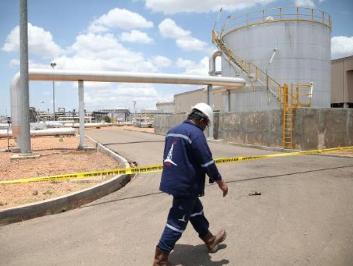S. Sudan deploys more troops in oil fields to boost production
February 16, 2017 (JUBA) – South Sudan has deployed more troops in preparation for the resumption oil production in areas where activities were halted as a result of the December 2013 outbreak of conflict, which badly affected production in Unity state and parts of the Upper Nile region.

“The government is doing the best to ensure that there is adequate protection at the sites where oil production would resume soon in unity. Preparations are underway,” said Machar Ader Achiek.
“The security forces are on the ground to provide adequate security and to ensure the safety of the oil workers and operators”, he added.
Local authorities, Achiek said, have started sensitising communities around the area to embrace peaceful dialogue and to help government at their level to bolster security at oil installations at Tharjiath field and other sites.
“Oil is a national resource and it is when it is extracted that the government can now be able to provide services to the people. If extraction is affected, the delivery of the basic services is also affected. So the resumption of the oil production is in the interest of both the government and the communities from where it is extracted,” explained Achiek.
He added, “This is why protection of oil sites requires cooperation from the communities”.
The Sudanese government, according to the head of the state-owned oil entity, agreed to provide electricity from Heglig and to work collaboratively with the south Sudanese authorities to protect oil workers engaged in production.
Northern Liech state information minister, Lam Tungwar said the state government will do its best to help the national government provide protection to workers in the oil fields as requested by the minister of petroleum, Ezekiel Lol Gatkuoth, when he visited the newly-created state last month.
Since its independence, South Sudan has relied on oil for all income—a situation that has significantly compounded ongoing political and economic instability due to fall in crude oil prices.
According to South Sudanese officials, production in the past reached as high as 350,000 bpd but fell after a dispute with Sudan over fees for pumping South Sudan’s crude through Sudan’s export pipeline, which led Juba to halt production in 2012.
South Sudan got the lion’s share of the oil when it split from Sudan in 2011, but it’s only export route is through Sudan, giving Khartoum leverage and leading to the ongoing pricing disputes.
(ST)
